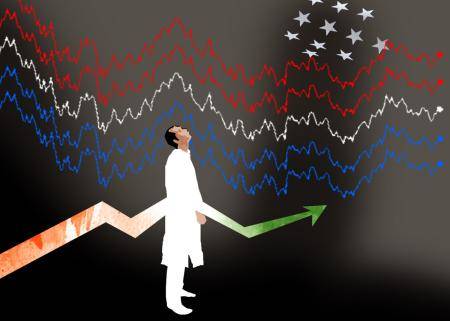The Rise of a New Addiction: Investors Hooked on Risky Trades
A disturbing trend is emerging in Gamblers Anonymous meetings across the United States. Investors, once drawn to the thrill of the stock market, are now seeking help for their addiction to high-risk trades. These individuals, many of whom discovered trading during the pandemic boom of 2020, have become hooked on the rush of potentially massive returns, despite the overwhelming likelihood of crushing losses.
At a recent Gamblers Anonymous meeting in Manhattan's Murray Hill neighborhood, one attendee likened options trading to "the crack cocaine" of the stock market. Another shared a harrowing tale of borrowing from a loan shark to double down on stocks, only to face hundreds of thousands of dollars in losses. These stories are not isolated incidents; they represent a growing phenomenon that has doctors and counselors sounding the alarm.
The pandemic boom, which began in 2020, created a perfect storm of conditions that drew many people into the world of trading. The rise of meme stocks and viral stock sensations offered the promise of easy wins, luring investors into increasingly risky trades. These high-octane wagers, which often require minimal upfront investment, offer the tantalizing prospect of massive returns. However, the reality is that these trades are more likely to result in devastating losses.
As the stock market continues to climb, with a 23% increase this year, and bitcoin reaches new heights, topping $100,000 for the first time, the temptation to engage in speculative trades will only intensify. Doctors and counselors expect the problem to worsen, as more individuals become ensnared in the cycle of addiction.
The parallels between trading addiction and traditional gambling addiction are striking. Both involve the thrill of risk-taking, the rush of potential rewards, and the devastating consequences of loss. As the number of investors seeking help for trading addiction grows, it is clear that this is a crisis that demands attention and action.
Gamblers Anonymous, which has been providing support to individuals struggling with addiction for over six decades, is now adapting its programs to address the unique challenges of trading addiction. However, more needs to be done to raise awareness about this growing problem and to provide resources for those struggling with addiction.
As the stock market continues to evolve and new investment opportunities emerge, it is essential that we acknowledge the risks associated with trading addiction and take steps to mitigate them. By providing support, education, and resources, we can help individuals avoid the devastating consequences of trading addiction and promote a healthier, more sustainable approach to investing.




No comments yet
Be the first to share your thoughts!